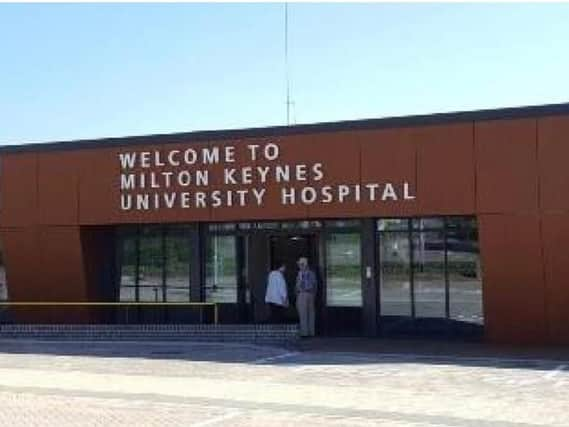Hospital chiefs in Milton Keynes plan “robust” response to two coroner’s death reports


Two Prevention of Future Deaths (PFD) reports have been slapped on MK University Hospital in the last year, a Council of Governors meeting was told this morning (Thurs, Nov 7).
The first PFD was lodged with the hospital on September 26, following an inquest into the death on June 11 this year of 72-year-old John Shrosbree. There was a crucial delay in his care and he died one week after being admitted to the hospital.
Advertisement
Hide AdAdvertisement
Hide Ad“The coroner was concerned about staffing levels in the emergency department,” said Ian Reckless, the hospital’s medical director. “The coroner asked questions of the staff, which may have been slightly leading.”
Dr Reckless said that there had been issues with Mr Shrosbree’s care after a blood test was not reviewed quickly enough. The hospital agreed, has apologised to the family and, Mr Reckless said, have taken action to prevent such issues in the future.
But hospital chiefs are contesting Mr Osborne’s finding – issued by way of a regulation 28 report to prevent future deaths – that the underlying cause was with staff shortages.
A report from the hospital is due to go back to the coroner by November 21.
Advertisement
Hide AdAdvertisement
Hide AdMr Reckless said: “We do not think there were issues and we will be telling the coroner that robustly.”
He added that staffing levels on the day were “similar to other hospitals” and we are assured we had safe staffing levels.
“We value the coronial process because reviewing deaths can be very useful but in this case, the evidence could have been found before the process.”
Hospital chiefs are concerned that prevention of future death reports are potentially damaging to public faith.
Advertisement
Hide AdAdvertisement
Hide AdHospital chief executive Joe Harrison said inspections by the Care Quality Commission had found no problems with staffing levels.
Mr Reckless revealed however that the hospital had received a second prevention of future death notice this year.
He said a patient had died after being given a blood-thinning drug sooner than they should have. The hospital apologised to the family.
He said the PFD notice had been made based on “an anecdote from a junior doctor,” adding that “on two occasions we have been slightly blind-sided.”
Advertisement
Hide AdAdvertisement
Hide Ad“Our concern is that if a prevention of future deaths notice is not evidence-based then it can affect public confidence.”
And Mr Harrison added: “Our coroner has been generous in nailing PFDs. He has a long track record.”
Mr Reckless also told the Council of Governors meeting that the hospital is reviewing why they were labelled as one of the worst areas for people coming back with hip operation problems.
Called “revisions” they involve people returning to the hospital within five to 10 years to fix issues with their hip replacements. It was identified in an article in the Sunday Telegraph newspaper on October 13.
Advertisement
Hide AdAdvertisement
Hide AdMr Reckless said: “We are on a journey of understanding it” by looking back at information over the years.
“We are looking into the revision rate problem and we are working through it with the Department and the Joint Registry,” he added.